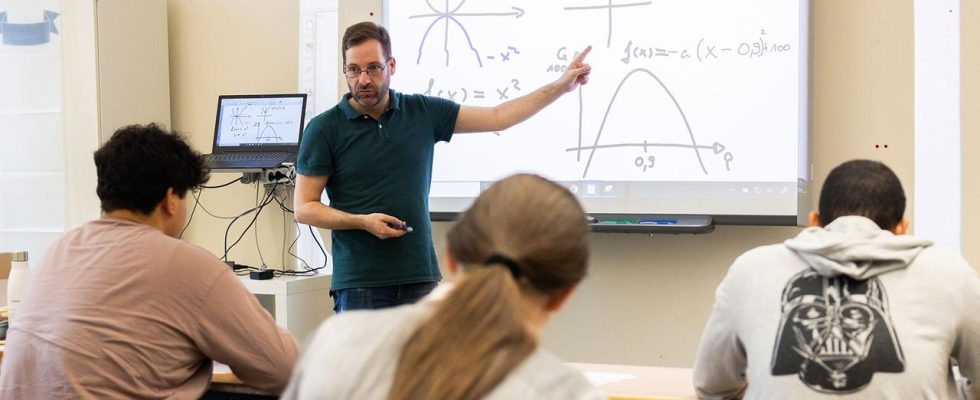Germany’s schools have become worse in the eyes of the citizens in recent years. This is the result of a survey by the ifo education barometer. There are complaints about a lack of teachers, a lack of financial resources and inertia.
The quality of German schools has declined in the assessment of the citizens. This is the result of a representative survey of 5,500 adults, the results of which were published by the ifo Education Barometer.
Only about a quarter of the schools are good or very good
Based on school grades, the German schools only achieved a 1 or a 2 in 27 percent of the cases. In a comparable survey in 2014, this rate was still 38 percent. From the point of view of those surveyed, the corona pandemic has had a significant influence on the assessment of the schools in recent years. According to 79 percent of them, school quality has deteriorated due to the effects of the pandemic.
“These are alarming findings,” comments Ludger Woessmann, head of the ifo Center for the Economics of Education. “We urgently need to solve the problems of the schools, and the Germans are also ready to do it.”
teacher shortage and insufficient funds
According to the survey participants, the lack of teachers in particular is a problem for the quality of schools in Germany: 77 percent see it that way. 68 percent of those questioned also consider the lack of money for the schools, and 66 percent the sluggishness of the system to be an important quality problem. 61 percent complain about learning deficits caused by Corona. 57 percent find insufficiently renovated school buildings problematic.
Respondents also have a fairly clear opinion on ways to solve the current problems. In order to combat the shortage of teachers, the post-qualification of teachers for teaching shortage subjects should be promoted (79 percent). 64 percent think it makes sense to use lateral entrants in shortage subjects.
In order to equip the schools with teaching staff, but also to improve the equipment, 74 percent are demanding higher education spending from the state. According to the ifo researchers, this is the clearest preference for higher government spending. In comparison, only 38 percent of those surveyed find higher spending in the area of defense a good thing.
Theme digitalization split the Germans
Openness to the topic of digitization in schools is growing among Germans. 49 percent of those surveyed are of the opinion that there are more winners than losers as a result of digitization. The openness of Germans to pupils working through the subject matter independently on the computer increased between 2014 and 2017, but fell again in 2023. The majority of Germans also reject teaching how to use artificial intelligence and chatbots in class (54 percent), and they support forms of testing that prevent the use of these digital tools (55 percent).
“Education monitor 2023″ also sees a negative trend
The “Education Monitor 2023” published today by the “Initiative Neue Soziale Marktwirtschaft” (INSM) also identified a negative development in school quality in Germany. INSM is a subsidiary of the German Economic Institute (IW).
According to the study, the level of education in Germany increased in many areas in a long-term comparison up to 2013, but then declined continuously. The dependence on educational success and social background has increased. The results of children from educationally disadvantaged households or with a migration background have fallen particularly sharply.
IW study author Axel Plünnecke sees one reason for the development in the fact that day care centers and schools “have not yet found a good answer to the fact that the student body has become significantly more heterogeneous in recent years”.
More all-day offers and targeted promotion
According to the study, slight improvements in the expansion of early childhood education, the all-day infrastructure and the childcare ratio could not compensate for this. “There is a lack of quality in the all-day program and there is a lack of targeted support,” says Plünnecke. In a long-term comparison in 2021, the average values for reading and listening among fourth-graders were on a national average at the level of the worst state of Bremen in 2011. The same applies to dealing with risk groups.
The researchers at the IW therefore called for the expansion of early childhood education, more self-determination for schools, annual nationwide comparative work in all grade levels as well as targeted support for schoolchildren and more high-quality all-day offers.

